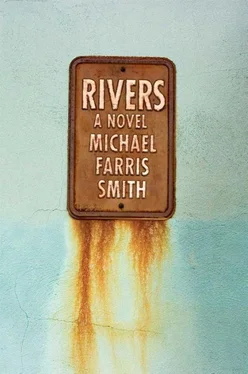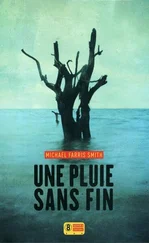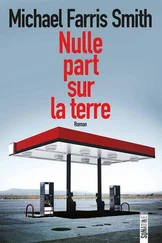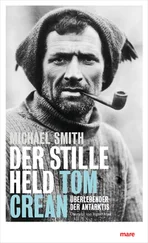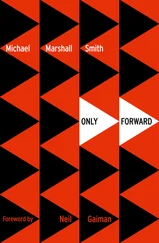“No. He waited it out. Finally the family was getting ready to go and the old man kept on watching the boy and then he died sitting in a chair on the beach. I guess he got the plague, but you’re never really sure.”
Cohen emptied his glass and poured himself more. Across the way, the orchestra was silent for a moment and then began to play.
“I don’t know if he loved him,” Cohen said. “If he did I think he would have told them.”
Elisa raised her glass and drank, trying to decide.
“And he killed himself, basically,” Cohen said. “Right?”
Elisa set the glass down and emptied what was left of the wine carafe. The orchestral song echoed across the Palazzi Soranzo, echoed through the streets and alleyways, echoed against the thousand-year-old stone buildings and underneath the arched walkways.
“I think he was willing to die for the boy and he forgot everything else,” she said. She turned her head and looked across the plaza, up into the sky, as if trying to see the music. “I don’t think he knew the difference between right and wrong. Not because he didn’t care. He just lost touch with it.”
Cohen watched her. Could see her head and heart working together. He had always loved her this way and had seen this look on her face many times before as they sat on the beach and stared out across the ocean.
“It sounds like a good story,” he told her.
The orchestra played and the white-robed children began to file onto the stage and fill the rows of stairs. The woman in the red dress stood at the front of the stage with her back to the orchestra, her hands folded in front. People from across the plaza and from the extending streets began to drift toward the stage as if pulled by invisible strings. When the children were in place, the woman raised her hands, held them there. She brought them down gently and the angelic voices of children spread softly across the day.
IT WAS COLD AT FIRST but he got used to it and the propane burner helped in time. The first thing he did was clean the gunshot wound in his thigh, turning the water pink. When it was clean, he stood and let the dirty water run out and then he ran a new bath. Then he sat down in the tub and he stared at the wall and tried to figure out the best way to get back to the Jeep.
He figured they couldn’t have come more than twenty miles or so. He closed his eyes and slumped down beneath the water. Felt it cold and refreshing on his head like the spring’s first dive into the Gulf. Twenty miles didn’t seem like such a long way, not if the weather gave a little. He held his breath and stayed down as long as he could and then he came up with a gasp, wiping the water from his face and when he opened his eyes she was there, holding the candle in front of her as if keeping a vigil for the lost. Her overcoat was gone and her flannel shirt was gone and she was in a too-big T-shirt and jeans and barefoot. Her shadow rose behind her against the wall and up onto the ceiling.
They were right, he thought as he looked at her. She had not taken a bath. She stood still and stared at Cohen. He sat up straight and looked away from her, down into the bathwater. Then she walked across the room to the lantern and she turned it off.
He slipped under again, floating some, the images of the Jeep and the storm and the hole in his leg disappeared and his mind wandered off into a vast, empty place, and this time when he came up, her clothes and the candle were at her feet and she held her arms close against her body. Wild patches of hair at her armpits and between her legs. Her wavy black hair fell down across her breasts and reached her belly, like black silk cords of a velvet curtain that could be pulled back and allow you into a secret room. The beating of the rain against the roof and across the land and the light from the candle dim but pure as she came to him. He sat up with his arms on the side and she stopped at the edge of the tub and traced her fingers across the top of his hand. He didn’t look up at her but stared at her hips as she stepped over into the tub and nestled herself between his legs and she lay flat against him and held her mouth close and he smelled her and she waited to see if he would come to her.
He didn’t move. There was betrayal and hope and fear and love and hurt and yesterday and today and tomorrow twisting around in his head like a bed of snakes striking against one another for supremacy.
She moved her head down and leaned her face against his chest and her arms slid down into the water and wrapped around his back and she lay there. This black night and this nowhere and this rain that wouldn’t cease and downstairs the endless crying of the baby who seemed to have taken time to acclimate to this world and had now decided to rage against it with his angry but feeble voice that was as helpless against the grasp of nature as everyone and everything else.
In the corner of the room, water began to drip from the ceiling and it tapped the floor rhythmically as if readying for the strings to join in. One two three, tap. One two three, tap. The rain and the thunder and the crying infant and the one two three tap and the dull yellow light and the shadows long and this woman or maybe this girl but this person across him. Close to him. As close as she could be. Her head against his chest and her arms around him and their bodies together in the cool water and he moved his hands from the side of the tub and he moved them to the curve in the small of her back. She then lifted her head and he felt her tongue across the nape of his neck and he slowly exhaled, as if allowing the years of solitude to escape from him, if only for a little while.
THE BABY CRIED THROUGH THE night, never wanting to eat and randomly spitting up something thick and sticky. He slept only in half-hour intervals, his forehead and arms and belly hot like a rock in the sun. The floorboards were plentiful and kept the fire going and with the vague light of dawn they had all risen and were standing together in the kitchen, looking out of the windows at the storm. It had gained strength through the night and several times caused the old house to crack and bend in ways that a house shouldn’t. And now, as they stood together in the early morning, the wind came hard and there was the sound of wood splintering and a lengthy groan.
“It’s never gonna let up,” Evan said.
“Something ain’t right with him,” Nadine said. She had held him most of the night. His head was wet with sweat. “I say damn it all and let’s go. We try to sit this one out, we could be here for two weeks.”
“We can’t go out in this,” Cohen said. The house cracked again somewhere. “But we might not have a choice.”
“We got to get the baby to a doctor,” Kris said. “We can’t let him die out here.”
“Look at him,” Nadine said and she showed him to the others as if they had never seen him. His strained face and damp head and dry lips and gasping cries.
Mariposa moved over to Nadine and touched the child’s forehead. She looked at Cohen and nodded.
“So. What the hell?” Evan asked Cohen.
“Nadine’s right. God knows how long it’ll go on.”
“The screaming or the storm?”
“All of it.”
“You think this is the worst?” Evan said.
“I can’t tell anymore.”
“Shit,” Nadine said. “It ain’t safe nowhere in this fucking world.”
“Hey,” Evan said sharply, pointing at Brisco.
“Hell, I can’t help it.”
“Not the F-word. Damn.”
Mariposa moved from the baby and over to Cohen and she said, “Have you figured out which way to go?”
“Kinda. About like yesterday,” Cohen said. “I do know that somehow Charlie used to make it down here and back all the time in that big truck so there’s gotta be a good road somewhere. We just got to find it.”
Читать дальше
